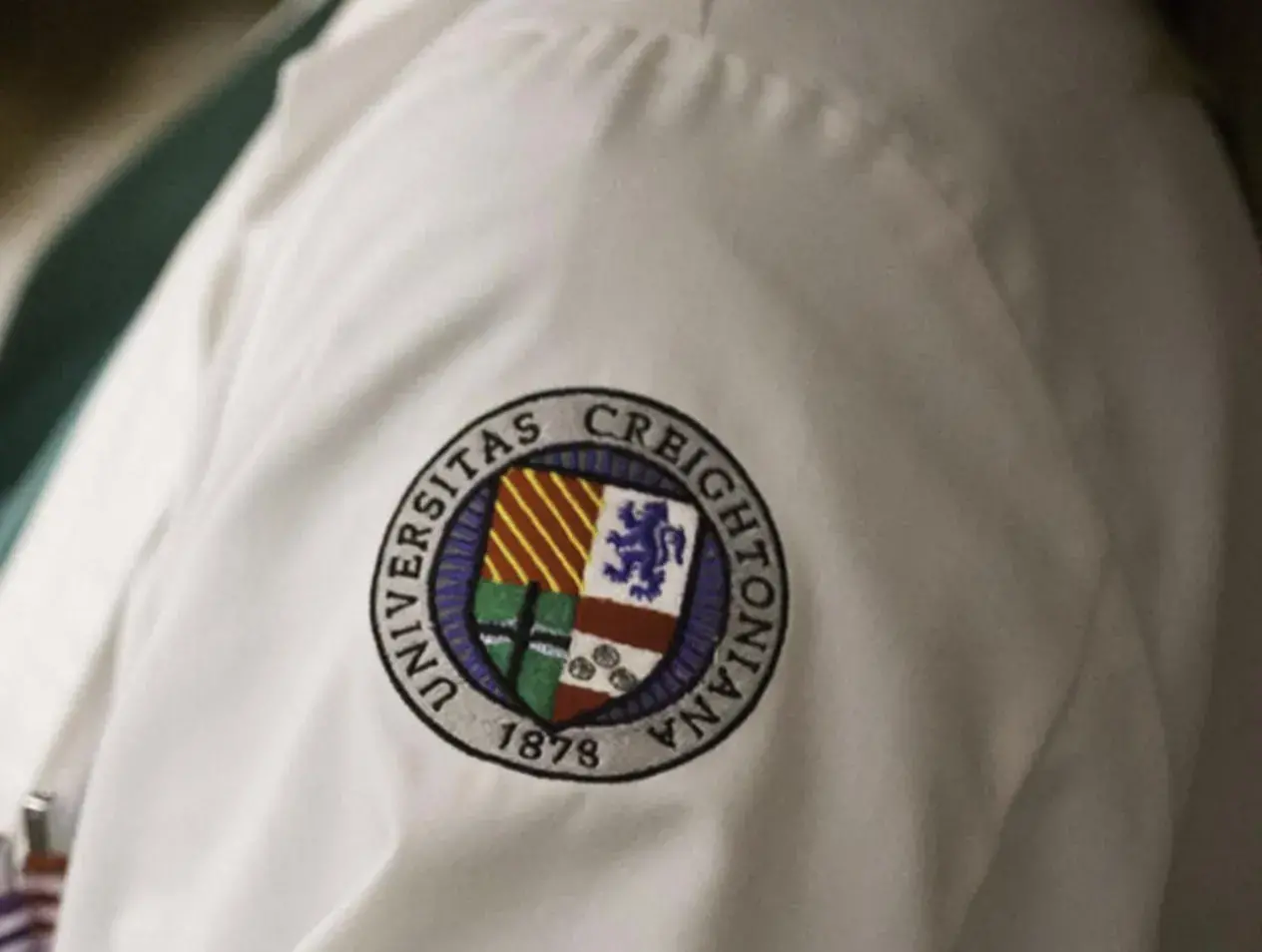
Medical Professionalism
Making A Lifelong Commitment To Medical Professionalism.
Medical education and patient care at Creighton University School of Medicine are dependent on the commitment of students and faculty to professional values anchored in the Catholic and Jesuit tradition of being women and men for others. These professional values include altruism, accountability, excellence, duty, honor and integrity, respect, compassion and a special emphasis on social justice.
Beginning with the admissions process, our medical education environment fosters a lifelong commitment to professionalism by stimulating critical and creative thinking and by providing ethical perspectives for an increasingly complex world.
- Altruism lies at the core of professionalism and entails putting the interests of others before one’s own. The interests of the patient must be paramount. Serving the poor and disenfranchised is the hallmark of altruism in the Jesuit tradition.
- Accountability means medical professionals are responsible for their patients, colleagues and society. Medical students are accountable to fellow students and teachers by preparing for and participating actively in their educational activities. In addition, students are responsible for maintaining and improving the quality of teaching by constructively evaluating the curriculum to ensure the best possible education for current and future students. Upholding the ethical standards of the profession includes being prepared to report the professional misconduct of others.
- Excellence is a conscientious commitment to lifelong learning and honest self-assessment to ensure the highest quality of medicine. For the medical professional, it means continuing to gain and share knowledge of clinical medicine and biomedical research to improve the welfare of patients and the public’s health. For the student, the pursuit of excellence begins with the first day of medical school and includes a commitment to innovative, integrated and values-centered learning, research and patient care.
- Duty is the commitment of oneself to both the service of others and to one’s own personal development. For the medical professional and the student, it means advocating for and being responsive to patients and others in need, particularly those whom society marginalizes based on their economic and social status, age, mental or physical impairment, and/or ethnic, racial, religious, sexual or gender status. It also means being involved in professional organizations and community programs and not participating in activities that compromise objectivity and the well-being of patients and society. In addition, duty entails paying attention to one’s spiritual, mental and physical well-being. It involves an appreciation of the importance of maintaining a balance among personal, family and professional areas to remain healthy and maintain a proper perspective.
- Honor and integrity constitute the highest moral standards of behavior and adherence to personal and professional ethical codes. The standards include truthfulness, fairness and fidelity to one’s words and commitments. The medical professional must avoid all conflicts of interest. For students, honesty demands genuine representation of themselves and their credentials, meticulous adherence to the student honor code and the rejection of any actions that compromise the welfare and development of their colleagues.
- Respect for others demands recognition and reverence for the human dignity of patients and their families. For both the medical professional and the student, it means adhering to the canons of medical ethics. This includes patient involvement in decision-making, confidentiality, fully informing the patient, never abusing power and acting always for the best interests of the patient. Additionally, the medical professional and student must show sensitivity to gender, age, culture, religion and other aspects of diversity among patients, families and colleagues.
- Compassion means having empathy for, reassuring and caring for patients and their families. For medical professionals and the student, it is an indispensable element of professionalism and an integral element of healing. Caring and emotional support are necessary, especially for patients with incurable illnesses.
School of Medicine student government developed the Student Statement of Values as a professional code for all students to follow. The Statement of Values supports the development of highly ethical values in all of our students and serves as the foundation for future professional development. It stresses personal honor, integrity and truthfulness; compassion; duty to others and professionalism. All students sign the statement as a commitment to the values of Creighton University School of Medicine.
Preamble
We, the students of Creighton University School of Medicine, believe that professional maturity, honor and integrity are essential qualities of developing medical professionals. This Statement of Values is based upon the belief that Creighton medical students will support and cultivate high ethical standards throughout their medical education. These standards are the foundation of the medical profession and the Jesuit academic community.
As Creighton medical students, we intend to foster these ideals through self-governance and through the support of our colleagues within our community. The Statement of Values is not intended to supersede any policies, regulations, codes, statutes or laws that exist within Creighton University Medical Center, Creighton University, the State of Nebraska or federal jurisdiction.
The School of Medicine’s Statement of Values is inclusive of the following four fundamental principles:
Personal Honor, Integrity, and Truthfulness – As Creighton medical students, we are committed to upholding the highest level of honor and integrity in our daily affairs and professional lives. Accountability and responsibility are necessary to uphold honor and integrity as they represent critical components of these values. Truthfulness, a component of honor, requires accurate representation of one’s self, but it also includes many other elements including, but not limited to, fairness to others and trustworthiness. Cheating, plagiarism, stealing or lying in any form is not acceptable if we are to respect the values of personal honor and integrity. Honor and integrity are core ideals, with the greatest respect for oneself at the heart of these values.
Compassion – Compassion for all life is an integral part of the medical field. As aspiring physicians, we must uphold the values of compassion in every facet of our education. The value of compassion dictates that empathy and respect for the human condition be displayed in all attitudes and behaviors we exhibit both publicly and privately. Compassion is a core value to Creighton medical students because without it, our education lacks the focus in learning to serve others.
Duty to Others – Altruism and a commitment to be public servants are vital if we are to succeed and enjoy our future professional careers. Duty to others is defined as our commitment to the greater good, to community service, to our family, friends, colleagues and ultimately, to our patients. Medical students and professionals at Creighton are committed to not only bettering our knowledge, but also adding to the knowledge of others and contributing to the advancement of society as a whole.
Professionalism – Professionalism deals with our demeanor, attitude and behavior, which are manifested in our belief systems and outward expressions. Professionalism is rooted in maturity and requires us to be reflective of our actions in not only our professional lives, but in our conduct with other individuals. Professionalism paves the way for greater trust and respect from others and is expected from day one of our medical education.




